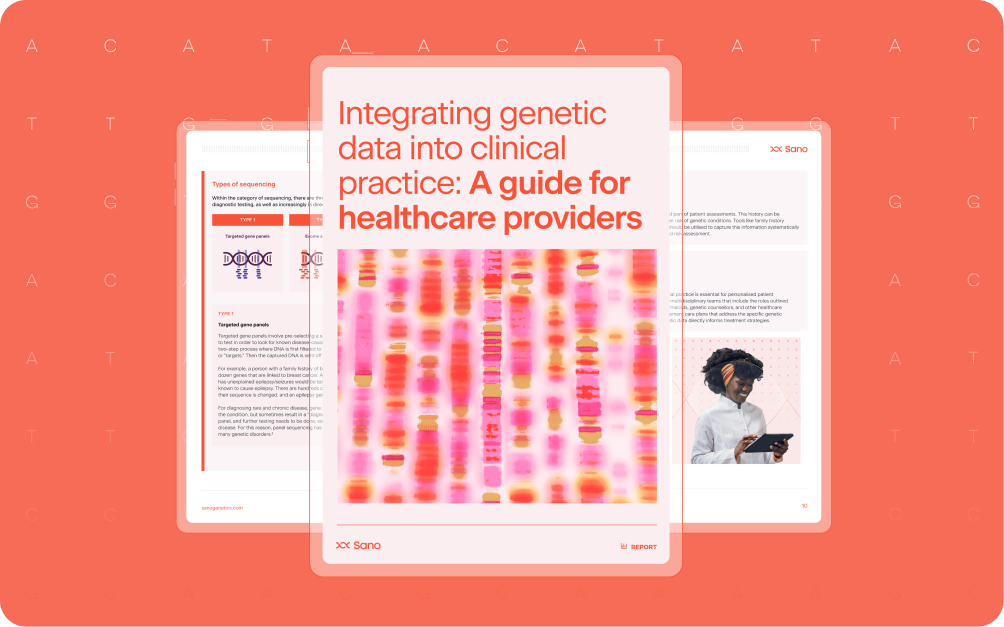Integrating genetic data into clinical practice

The incorporation of genetics into contemporary clinical practice is essential for facilitating personalised treatment plans and early diagnosis, and can lead to significantly better patient outcomes. This guide provides healthcare providers with a comprehensive overview of how to effectively integrate genetic data into clinical settings. Here are some key points covered:
Types of genetic testing
The guide details various genetic testing methods, including genotyping and sequencing. It explains the differences, advantages, and limitations of each method, providing clinicians with the knowledge to choose the appropriate test for their patients.
Interpretation of results
Understanding genetic test results is crucial. The guide offers insights into interpreting results, from identifying pathogenic variants to dealing with variants of uncertain significance (VUS). It emphasizes the need for clear communication with patients about the implications of their genetic information.
Collaborative approach
Effective integration of genetic data requires a collaborative effort among healthcare professionals. The guide highlights the roles of physicians, genetic counsellors, nurses, pharmacists, and pharmacogenomic specialists. Each professional plays a vital role in applying genomic insights to patient care.
Practical integration strategies
To help clinicians apply genomics responsibly, the guide outlines practical strategies, such as:
- Educational initiatives: Ongoing education for healthcare teams to improve genomic literacy.
- Patient engagement: Proactively discussing genetic testing with patients, particularly those with relevant family histories or symptoms.
- Referral networks: Establishing robust referral networks with genetic specialists to ensure timely and expert guidance.
- Collaborative care models: Developing multidisciplinary teams to create personalized care plans based on genetic data.
Ethical considerations
Incorporating genetic testing into clinical practice involves navigating privacy, consent, and ethical challenges. The guide addresses these considerations, ensuring healthcare providers can integrate genetic testing ethically and responsibly.
Conclusion
As the integration of genetic data into clinical practice becomes more prevalent, this guide serves as a valuable resource for healthcare providers. By implementing the strategies outlined, medical professionals can enhance diagnostic accuracy, tailor treatments more effectively, and ultimately improve patient outcomes.
For more, download the guide:


